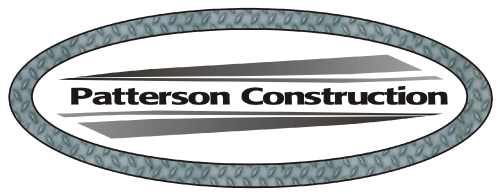How to Choose a Roofing Material
The appropriate material can go a long way toward increasing the roof's durability and making the house energy-efficient and safe.
Choosing a suitable roofing material is the most important decision a homeowner can make when replacing the roof. After all, the appropriate material can go a long way toward increasing the roof's durability and making the house energy-efficient and safe.
Understanding the characteristics of different materials can help homeowners make an informed decision. Please keep reading to learn more.
How to choose a roofing material based on the roof pitch
Roof pitch is the steepness of a roof expressed as a ratio of the roof's vertical rise to its horizontal span. The higher the first number in the ratio, the steeper the roof.
The roof's pitch plays an essential role in the roofing material choice. Here are general recommendations for roofing material based on the pitch:
4:12-12:12 pitch: any material
18:12 pitch and higher: metal, clay, and asphalt
Low-pitch and flat roofs: PVC, tar-and-gravel roofing
How to choose a roofing material based on the roof structure
Homeowners should also consider the roof structure when choosing the best roofing material. It's essential to consult a professional who will determine whether the roof structure is strong enough to support the desired material's weight.
What are the most common choices of roofing material?
For most homes, the choice between materials boils down to personal preferences regarding the material's appearance, longevity, and budget.
Metal
Metal is among the most durable options for roofing material. When properly maintained, it can last more than 50 years. This material also offers customization options, allowing homeowners to match the roof to their home exterior.
Homeowners can typically choose between the following metals:
Zinc
Copper
Steel
Aluminum
Regardless of the metal choice, the material is generally lightweight. As a result, it can be installed on various roof types, including those with a low pitch.
Asphalt
Asphalt is a popular roofing option due to its affordability. Also, it's easier to repair than most other roofing options. In addition, asphalt is available in many colors, allowing for a high level of customization.
Asphalt roofs consist of shingles with fiberglass mats and asphalt and granules on top. The shingles can last up to 20 or 30 years with proper care.
Tiles
Clay tiles are one of the most popular choices in the southwest, thanks to their insulation properties and durability. These tiles can last more than 100 years, providing they apply no pressure.
However, clay tiles are heavier and harder to install and replace, which affects their cost. Homeowners looking for a more budget-friendly option with a similar style should consider concrete tiles.
Slate
Homeowners who prioritize durability won't be able to find a better option than slate. This roofing material can resist rot, mildew, and insects and stay intact for over 100 years.
Admittedly, the impressive longevity also means a higher initial cost. But considering how beautiful, sustainable, and durable this material is, it is worth the investment.
Wood
Wood is the right choice for homeowners looking for a more sophisticated and natural roof look. Historically, wood was the top choice across the U.S. until its high cost and fears of wildfires made asphalt the go-to option.
What's more, wood can be costly in terms of maintenance and cleaning if the wood is untreated. When it comes to longevity, wood shingles don't last as long as clay tiles or slate.
How to make the best decision
Several factors influence the choice of the best roofing material. To avoid making a costly mistake, homeowners should consult experienced roofing contractors. They will ensure the roof is made using quality materials and installed correctly.
Patterson Construction Company installs and repairs residential roofs of all kinds, skylights, roof ventilation, fascia, and underlayment on Phoenix-area homes. Call 602-825-3638 for a free quote today!

